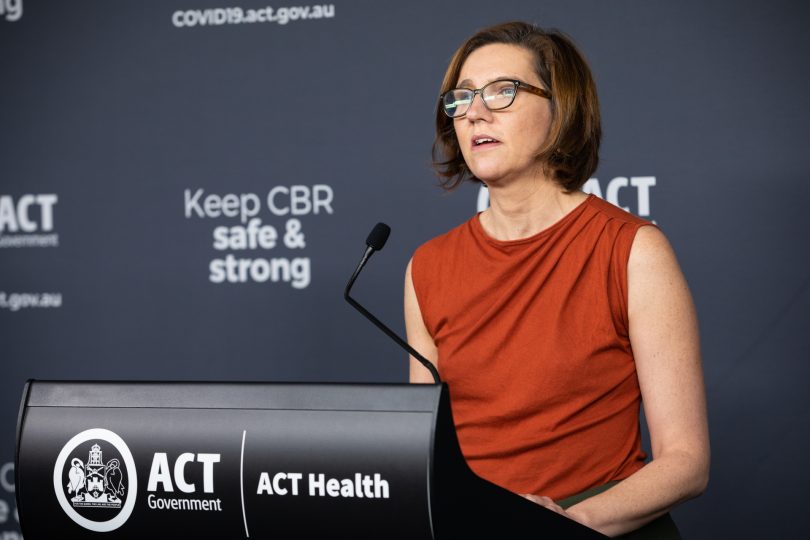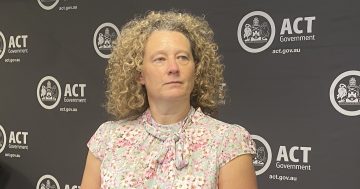
Revised health advice has been given to the early childhood education sector and will be implemented soon. Photo: File.
The ACT Government says most of the current quarantine settings are likely to remain in place throughout winter, although some reprieve is on the way for the early childhood sector.
At the moment, due to the age and vaccination status of the children in daycare and early childhood settings, a single positive COVID case attending a facility means the majority of their contacts are classified as high-risk and are subsequently required to quarantine for a full week.
This differs from the advice given to school settings where a positive COVID case in the classroom doesn’t necessarily lead to any exposure or classmates’ contacts being classified as high-risk.
It’s proved contentious for many parents who have been required to take time off work to care for their children who have been, in some cases, forced to quarantine repeatedly.
But Acting Chief Health Officer Dr Vanessa Johnston said the health advice for the early childhood sector has changed to bring it largely into line with what has been provided to primary schools.
“We recognise this is a very different setting with very close contact with unmasked kids who are unvaccinated, so that’s why from the beginning of term one, we had risk assessments that were more conservative,” Dr Johnston explained.
“And now that we’ve seen that an uptick in cases in that age group doesn’t translate to serious disease, we feel much more comfortable to align the [sector’s] risk assessment with K-12.”
She couldn’t say when any changes would commence, only that the “health advice has been provided” and she expected the change to come into effect shortly.
An enhanced testing regime would likely play a part in ensuring children and educators could continue to attend the settings even if they had been in contact with a case, Dr Johnston said.

Acting Chief Health Officer Dr Vanessa Johnston said now is not the time to lift mandatory quarantine requirements for high-risk and household contacts of positive COVID cases. Photo: Thomas Lucraft.
Other quarantine settings – such as the requirement to quarantine for seven days as a household or high-risk contact or positive COVID-19 case – will likely remain in place for winter.
“Understandably, there has been some public and media commentary about whether we still need quarantine rules for positive cases and household or close contacts, and certainly, we are always thinking about our settings and whether they are proportionate to the public health risk … but we do know that Omicron is highly transmissible and most transmissible to household contacts,” Dr Johnston explained.
“So, at this stage, ACT Health is not inclined to change the settings, and this is particularly true in the lead-up to winter.”
Authorities have previously said cases are expected to increase over winter since people will spend more time indoors.
However, Dr Johnston did say she would “never say never”, but the time was “not right now to do so”. She said health authorities are cognisant of the impact of current quarantine requirements on families and individuals.
No other Australian jurisdictions have removed the requirement for close and household contacts to quarantine, but a potential relaxation is reportedly being considered by the Australian Health Protection Principal Committee (AHPCC) – largely led by NSW and Victorian health officials.
Federal Health Minister Greg Hunt said he “strongly supported” going down this path.
Currently, AHPCC’s guidance allows workers in a selected few ‘critical’ industries to continue to attend work even when deemed close contacts as long as they are asymptomatic.
These changes were intended to ease workforce and supply chain issues.
The United Kingdom will soon be the first major European country to allow people who know they are infected with COVID-19 to continue going to work, going to the shops, and using public transport.














